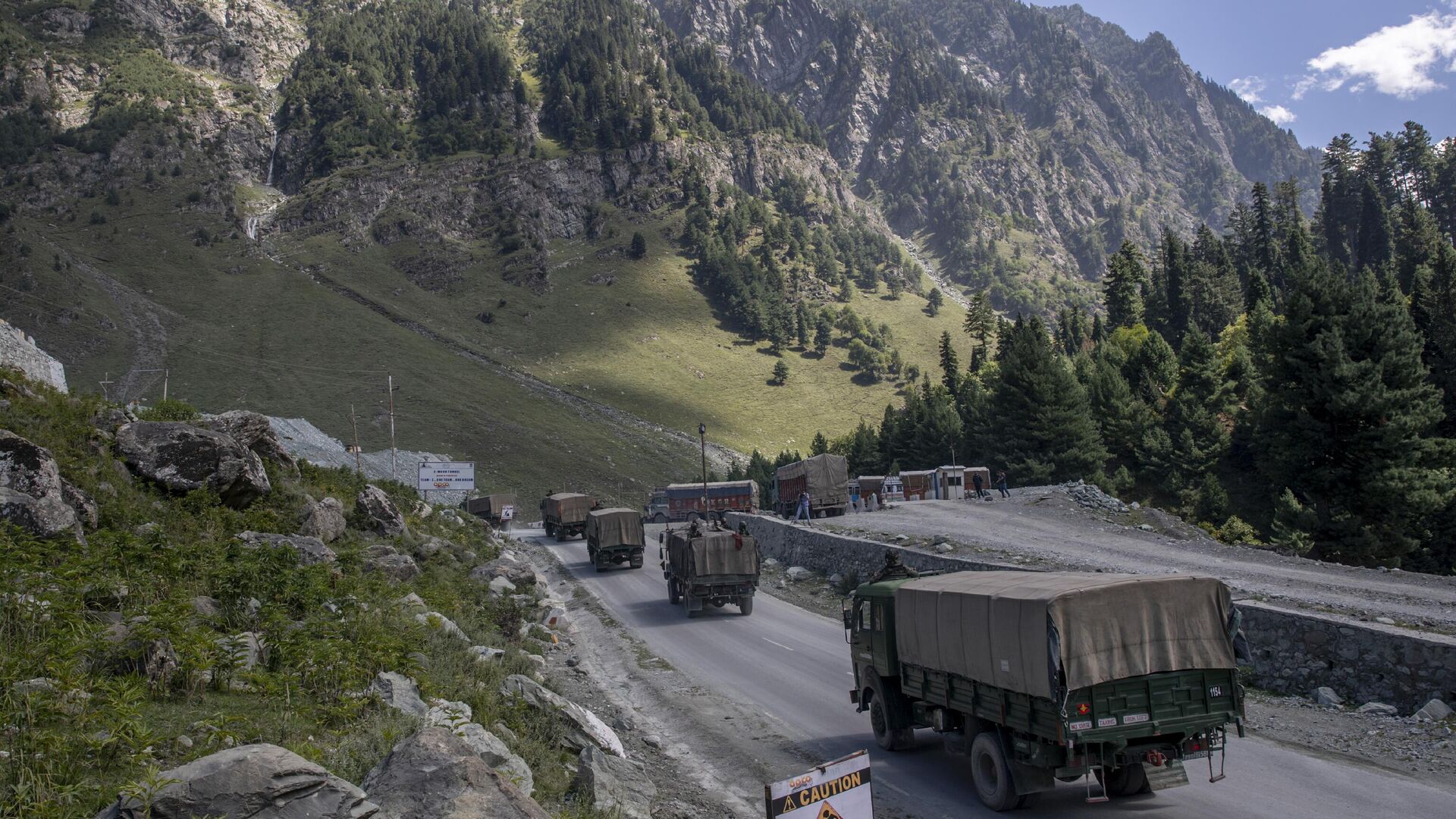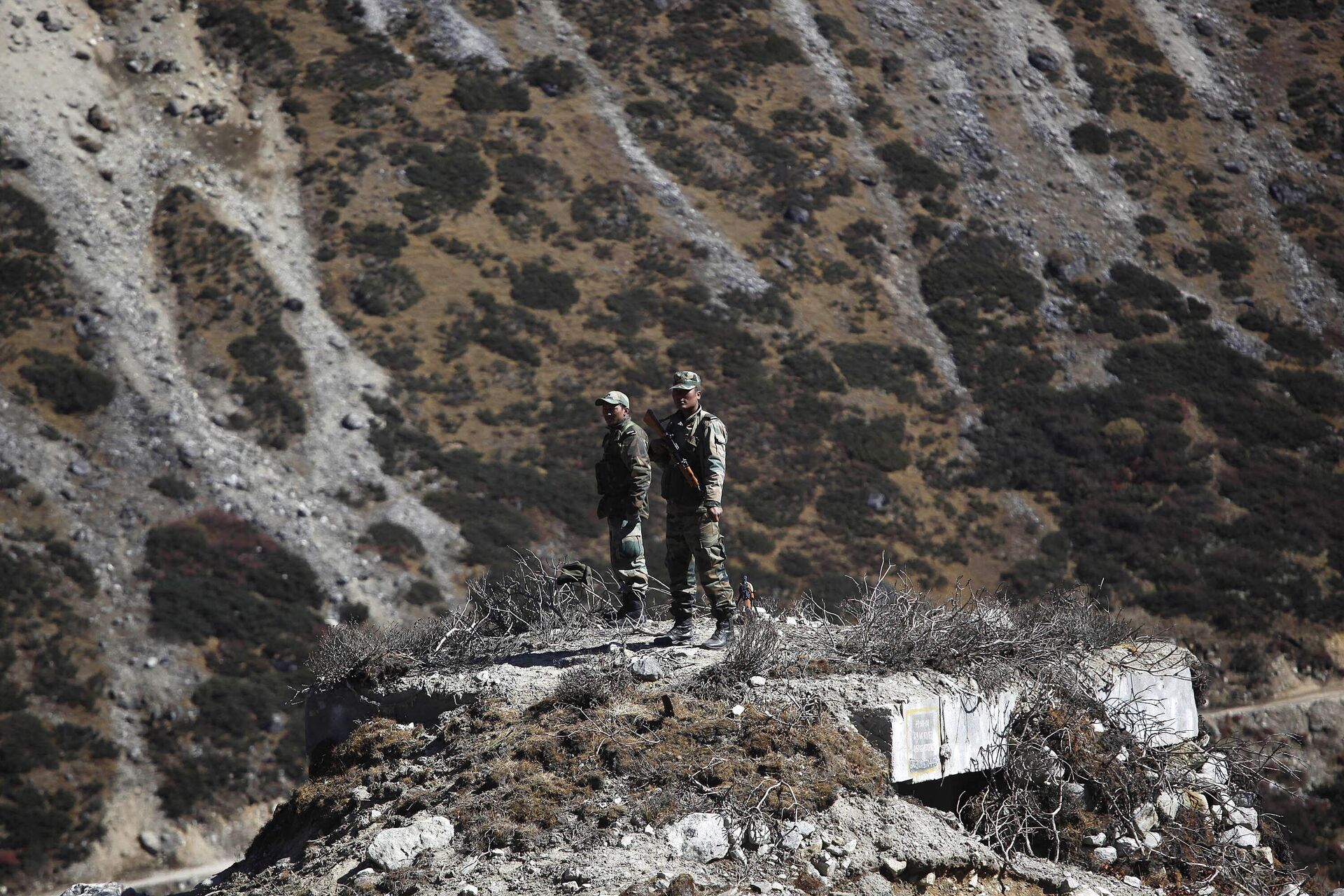https://sputniknews.in/20230103/indias-defense-minister-better-infra-key-to-swift-response-in-china-clashes-363594.html
India's Defense Minister: Better Infra Key to Swift Response in China Clashes
India's Defense Minister: Better Infra Key to Swift Response in China Clashes
Sputnik India
There has been an increase in military clashes between India and China since the Galwan incident in 2020. The two militaries engaged in a fresh clash in Tawang last month.
2023-01-03T15:07+0530
2023-01-03T15:07+0530
2023-01-03T15:07+0530
ladakh standoff
china
line of actual control (lac)
indian army
people's liberation army (pla)
tibet
ladakh
https://cdn1.img.sputniknews.in/img/07e6/0c/16/199489_0:271:3072:1999_1920x0_80_0_0_d14958cf8bf294241d64984860082437.jpg
India inaugurated 28 pieces of infrastructure along the border with China on Tuesday.Opening the pieces, Indian Defense Minister Rajnath Singh highlighted the importance of better infrastructure in his country's border defense efforts.Despite the border movements, Singh emphasized that India does not desire war, but is willing to defend itself should war come.The 28 projects include 22 bridges, including the Siyom bridge, and three roads. They are located in Ladakh (8), Arunachal Pradesh (5), Jammu and Kashmir (4), Sikkim (3), Punjab (3), Uttarakhand (3), and Rajasthan (2) states.The Siyom bridge is a 100-meter-long steel arch superstructure that was unveiled by Singh during his first visit to Arunachal Pradesh state since the December clash with China's People's Liberation Army (PLA).It allows the military to deploy troops and heavy machinery, including weapons like howitzers and mechanized vehicles, to the front lines of the Upper Siang district, Tuting, and Yingkiong regions near the Line of Actual Control (LAC) with China.India has accused China of increasing tensions between the two countries and failing to adhere to border agreements.In recent years, India has worked to reduce the infrastructure gap between itself and China along the 3,488 km LAC by building roads, tunnels, bridges, troop quarters, permanent defenses, helipads, and airfields.On December 9, a clash between the Indian and Chinese militaries occurred in the Yangtse sector of Arunachal Pradesh, resulting in injuries on both sides.This was the first significant confrontation between the two sides since the 2020 Galwan conflict, in which 20 Indian soldiers and four Chinese troops lost their lives.
china
line of actual control (lac)
tibet
ladakh
Sputnik India
feedback.hindi@sputniknews.com
+74956456601
MIA „Rossiya Segodnya“
2023
News
en_IN
Sputnik India
feedback.hindi@sputniknews.com
+74956456601
MIA „Rossiya Segodnya“
Sputnik India
feedback.hindi@sputniknews.com
+74956456601
MIA „Rossiya Segodnya“
india china border dispute 2022, tawang border dispute, india china border security force, what are the reason of rise in military clashes between india and china, what is the dispute over arunachal pradesh
india china border dispute 2022, tawang border dispute, india china border security force, what are the reason of rise in military clashes between india and china, what is the dispute over arunachal pradesh
India's Defense Minister: Better Infra Key to Swift Response in China Clashes
There has been a spike in military clashes between India and China since the 2020 Galwan incident. The Ladakh border stand-off continues, as the two nations once again fought in Tawang last month.
India inaugurated 28 pieces of infrastructure along the border with China on Tuesday.
Opening the pieces, Indian Defense Minister Rajnath Singh highlighted the importance of better infrastructure in his country's border defense efforts.
"Recently, our forces effectively countered the adversary in the northern sector and dealt with the situation with bravery and promptness. This was made possible due to adequate infrastructural development in the region. This motivates us even more for the progress of far-flung areas," the minister said.
Despite the border movements, Singh emphasized that India does not desire war, but is willing to defend itself should war come.
"If war is imposed on us, we are ready to face any challenge," he stated.
The 28 projects include 22 bridges, including the Siyom bridge, and three roads. They are located in Ladakh (8), Arunachal Pradesh (5), Jammu and Kashmir (4), Sikkim (3), Punjab (3), Uttarakhand (3), and Rajasthan (2) states.
The Siyom bridge is a 100-meter-long steel arch superstructure that was unveiled by Singh during his first visit to Arunachal Pradesh state since the December
clash with China's People's Liberation Army (PLA).
It allows the military to deploy troops and heavy machinery, including weapons like howitzers and mechanized vehicles, to the front lines of the Upper Siang district, Tuting, and Yingkiong regions near the Line of Actual Control (LAC) with China.
India has accused China of increasing tensions between the two countries and failing to adhere to
border agreements.
"We had agreements with China not to mass forces in our border areas and they have not observed those agreements, which is why we have the currently tense situation. We had an agreement not to unilaterally change the line of control, which they have tried to unilaterally do," Foreign Minister S. Jaishankar said in an interview with Austrian media on Tuesday.
In recent years, India has worked to reduce the infrastructure gap between itself and China along the 3,488 km LAC by building roads, tunnels, bridges, troop quarters, permanent defenses, helipads, and airfields.
On December 9, a clash between the Indian and Chinese militaries occurred in the Yangtse sector of Arunachal Pradesh, resulting in injuries on both sides.
This was the first significant confrontation between the two sides since the 2020 Galwan conflict, in which 20 Indian soldiers and four Chinese troops lost their lives.


